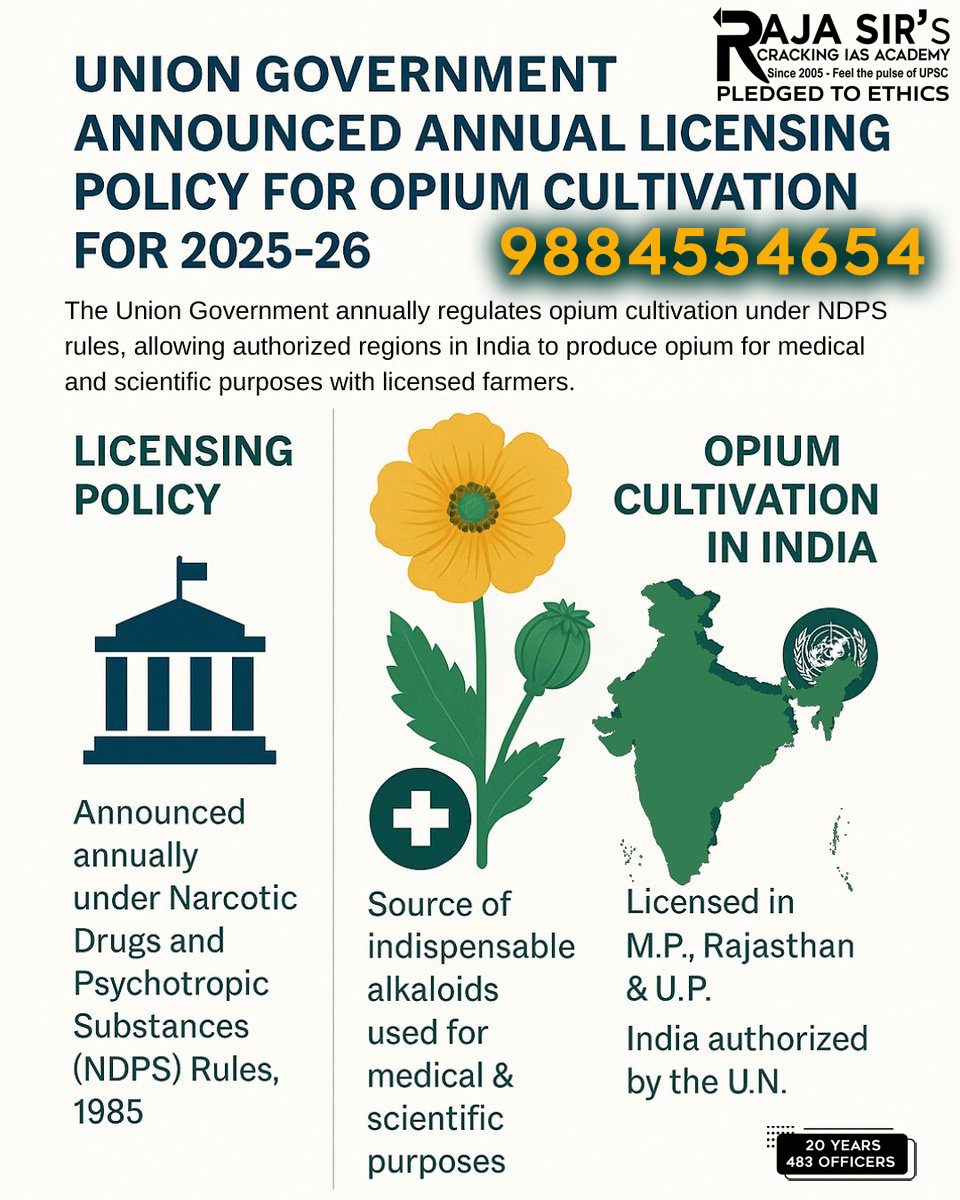- Home
- Prelims
- Mains
- Current Affairs
- Study Materials
- Test Series
Govt Clears Opium Poppy Licensing Policy For 2025-26
The Union Government has unveiled its annual licensing framework for the cultivation of opium poppy for the upcoming crop year 2025–26, covering the period from 1 October 2025 to 30 September 2026. The policy applies to farmers in Madhya Pradesh, Rajasthan, and Uttar Pradesh, India’s principal opium-growing regions, and signals a major expansion of participation in this regulated sector.
According to the Ministry of Finance, around 1.21 lakh farmers are expected to qualify for cultivation licenses, representing a 23.5 percent rise over the previous season. The increase includes 15,000 new farmers, broadening the base of licensed cultivators and offering them an opportunity to participate in a tightly controlled yet economically significant agricultural activity.
Key Provisions and Eligibility
The policy retains a performance-linked approach:
- Opium gum cultivators who achieved a Morphine Yield (MQY-M) of 4.2 kg/hectare or more in the last cycle can continue traditional cultivation.
- Farmers with yields between 3.0 and 4.2 kg/hectare may now shift to the Concentrate of Poppy Straw (CPS) method and will receive licenses valid for five years.
At the same time, cultivators who failed to meet the minimum qualifying yield of 800 kg/hectare under the CPS system during 2024–25 will have their licenses suspended for the new season.
|
Opium
|
Modernization and Incentives
To encourage productivity, high-performing CPS farmers producing over 900 kg/hectare of unlanced poppy straw will be given the option to switch back to the traditional gum method—an incentive aimed at boosting opium output while discouraging diversion to illicit markets.
The government has also emphasized digital inclusivity: since 1995–96, cultivator data has been digitized, enabling marginal or previously unregistered farmers who meet current criteria to apply seamlessly.
Officials highlighted that the policy supports a steady domestic supply of medically essential alkaloids, critical for pain management and palliative care. Parallel investments are expanding processing capacity at Opium and Alkaloid Factories, with the Neemuch facility recently earning WHO Good Manufacturing Practice (GMP) certification. These upgrades align with India’s broader Atmanirbhar Bharat vision, enabling the country to meet domestic pharmaceutical needs and enhance exports of alkaloid-based Active Pharmaceutical Ingredients (APIs).
By combining expanded farmer participation, yield-based incentives, and upgraded processing infrastructure, the 2025–26 licensing policy seeks to balance economic opportunity, medical necessity, and stringent regulation—reinforcing India’s leadership in the legitimate global opiate supply chain while supporting its “Make for World” manufacturing ambition.









 Latest News
Latest News

 General Studies
General Studies